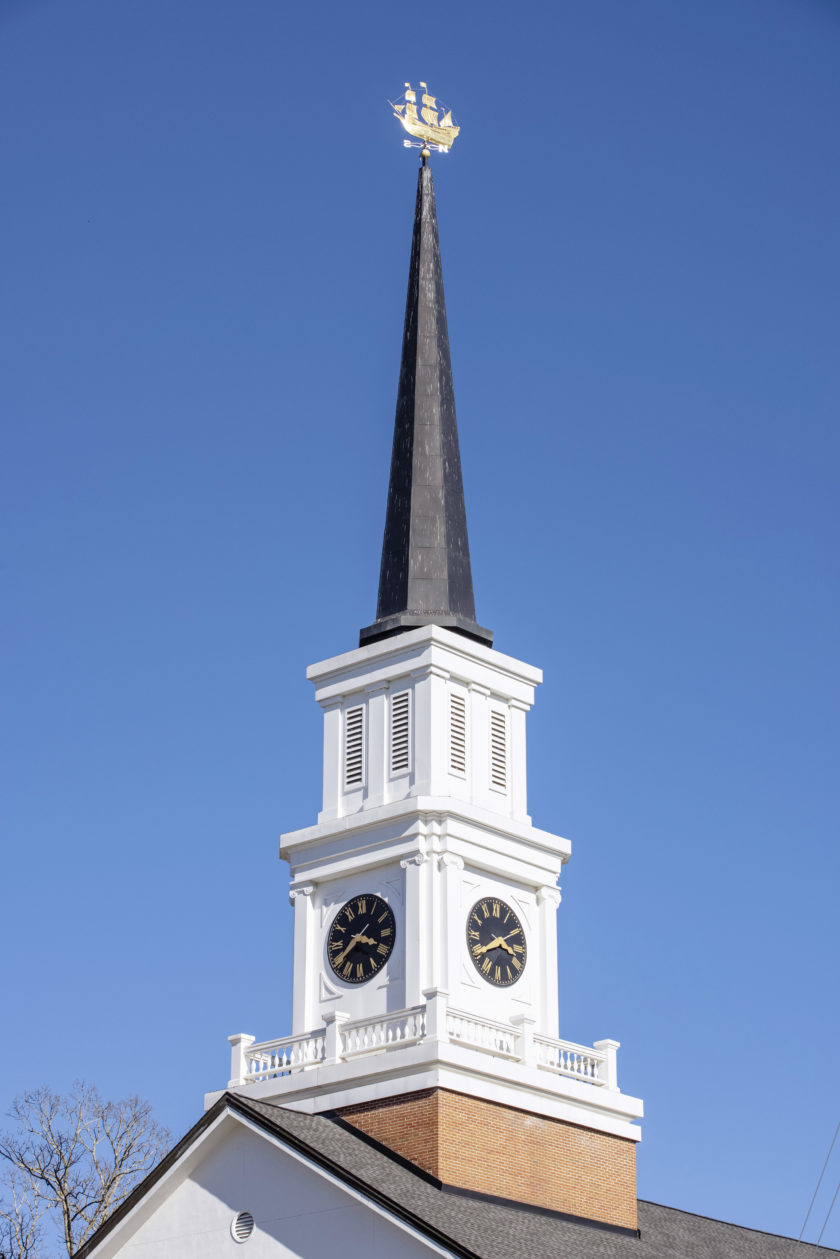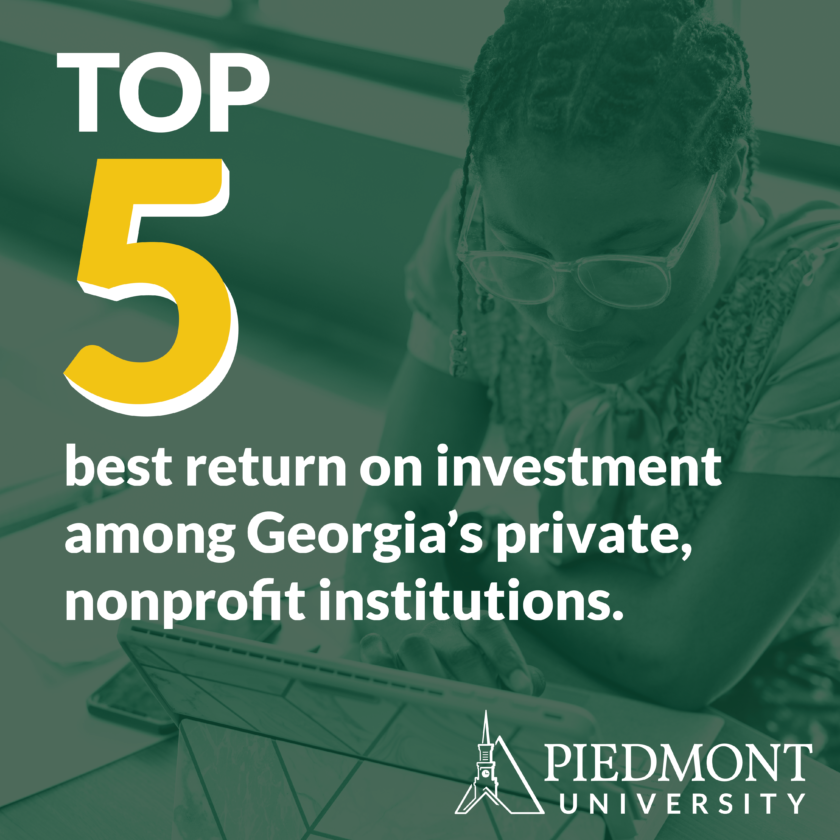Why Piedmont
At Piedmont University, we know our students by name — and so much more.
Some colleges and universities know their students by their student ID numbers. We know ours for their interests, strengths, goals, and dreams. We know how to spark our students’ curiosity and challenge their minds. We know how to support them along their educational journeys, develop into who they are meant to be, and prepare them for whatever life brings next.
This blend of personal attention and life-transforming preparation is why generations of students have chosen Piedmont University — and why you’ll feel right at home here, too.
The PiedmontExperience
The Piedmont learning experience is defined by small class sizes that allow students to receive personalized attention and create meaningful relationships with their professors, classmates, the material, and each other.
Outside of the classroom, students enjoy the university’s idyllic campus locations. The main, 300-acre residential campus is located in Demorest, amid the Appalachian foothills. A satellite campus is situated in the heart of downtown Athens, within blocks of restaurants and entertainment venues

Programs of study,
including bachelor’s,
master’s, and doctoral
degrees, and the Education
Specialist degree.

Colleges, including the Harry H. Walker College of Business, R.H. Daniel College of Nursing & Health Sciences, College of Education, and College of Arts and Sciences

Student-to-faculty ratio; second lowest ratio in Georgia among schools with at least 1,000 undergraduate students

Average class size

Student clubs and organizations

Intercollegiate sports teams competing in NCAA Division III
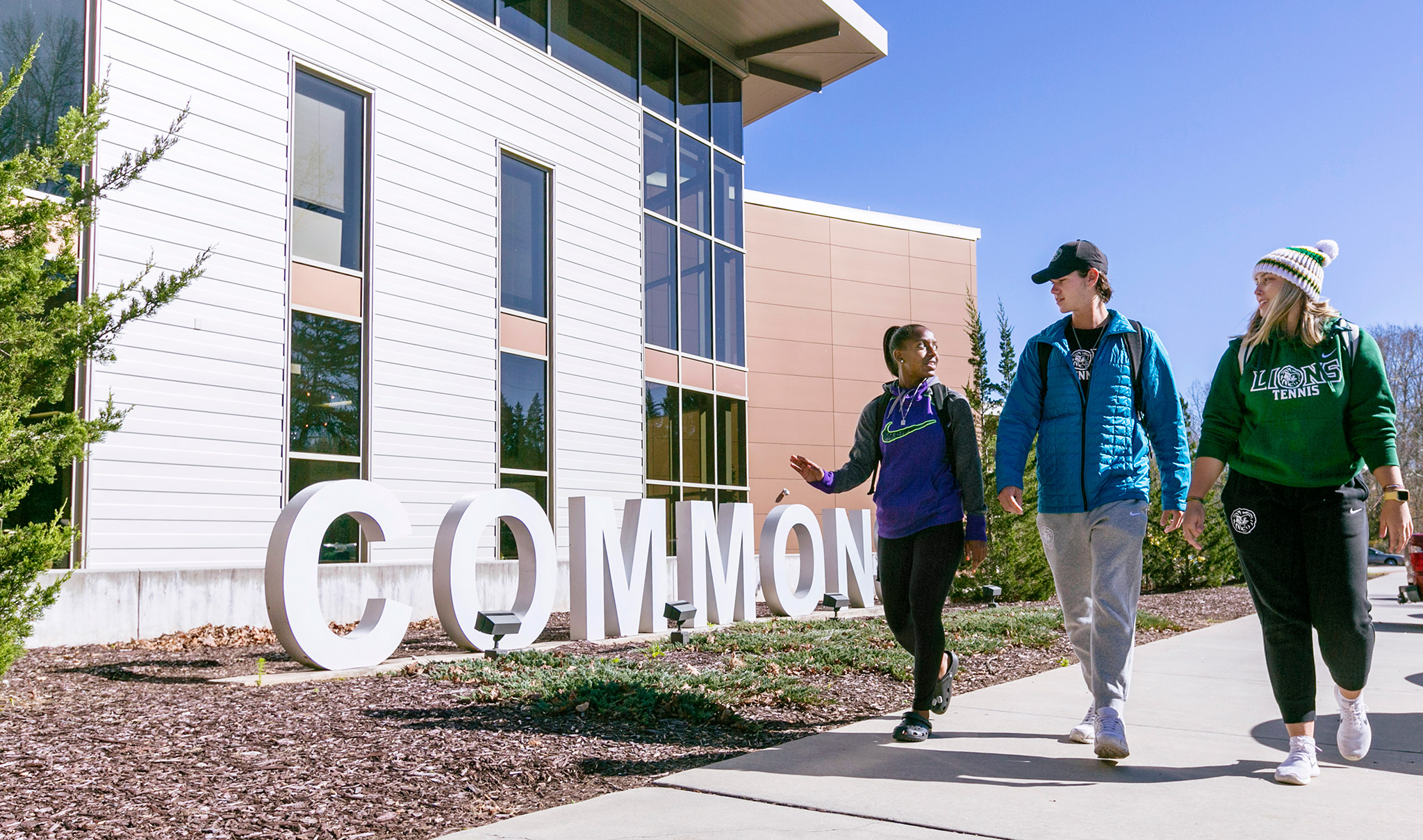
Rankings
Top private college in Georgia
(James Magazine, 2021)
Safest Campus in America
(Niche, 2021)
Best financial value in Georgia
(U.S. News & World Report, 2019)
AlumniOutcomes
94%
of Piedmont alumni rate their academic experience as good or excellent
Piedmont graduates have gone on to earn advanced degrees from institutions such as:
- UNIVERSITY OF GEORGIA
- EMORY UNIVERSITY
- DUKE UNIVERSITY
- VANDERBILT UNIVERSITY
Example Employers of
Piedmont Graduates
BANK OF AMERICA
BANKS COUNTY SHERIFF’S DEPARTMENT
COGENT COMMUNICATIONS
EVERSHEDS
SUTHERLAND
FIELDALE FARMS
FULTON COUNTY SCHOOL SYSTEM
GAS SOUTH
MANSFIELD OIL CO. INC.
UNIVERSITY SYSTEM OF GEORGIA BOARD OF REGENTS
Example Job Titles of
Piedmont Graduates
CHIEF EXECUTIVE OFFICER
COMPUTER AND INFORMATION
SYSTEMS MANAGER
EDUCATION ADMINISTRATOR
GENERAL MANAGER
MANAGEMENT ANALYST
MARKETING MANAGER
OPERATIONS MANAGER
TREASURER/CONTROLLER
Career Services
Piedmont offers a wide range of services to prepare students for graduate school, the workforce, or whatever their futures hold, including:
Major Selection
What are students interested in? What gets them excited? What do they think is fun? What classes have they most enjoyed in school? Career Services personnel help students answer these questions to pick a major that aligns with their inherent interests.
Career Exploration
A biology major could become a medical doctor or a plant scientist. A theater major could become an actor or a teacher. A business major could become a marketing specialist or a CEO. Career Services personnel work with students to delve deeper into their majors to select the career path that fits just right.
Career Shadowing & Internships
Career shadowing opportunities and internships help students continue learning about their intended career path. Career Services personnel help students secure real-world experiences to prepare them for their post-graduation plans.
Resume Building
Summer internships. Class projects. Volunteer work. So much of a student’s work — in and out of the classroom — can be used to build their resume and help them stand out to future employers and graduate schools. Career Services personnel help students put it all together.
Cover Letters & Interview Prep
Career Services personnel help students make the very best impression at every step of the job search process.
Salary Negotiations
Career Services personnel also help students research starting salaries within their chosen field and consult with them through the negotiation process. Students who have worked with Career Services have landed higher salaries than initially offered, as well as benefits such as extra vacation and gym memberships.
Graduate School Applications
Career Services also helps students research, select, apply, and interview for graduate school admission.
Personal Branding
Those spring break photos on Insta may not be give employers or graduate school admissions counselors the best impression. Career Services personnel help students clean up their online presence and build a strong personal brand.
To the workforce, graduate school, post graduation and beyond, our Career Services will help Piedmont students get there!
What Others Are Saying
Piedmont University is consistently featured in the most prominent college guides. Here are some of the recent accolades.
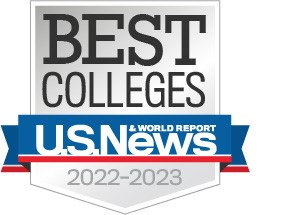

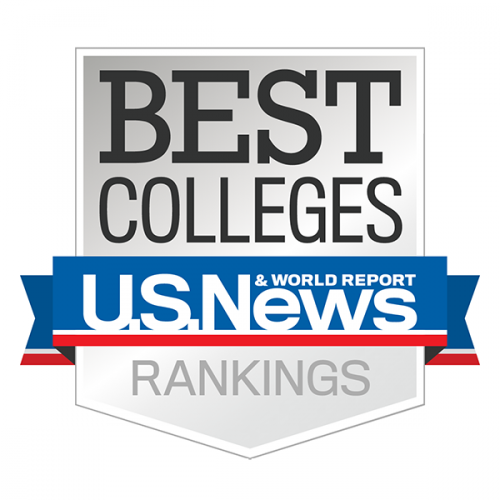
U.S. News & World Report
- Piedmont University climbed nine spots on U.S. News & World Report’s list of top regional universities, ranking at No. 44, compared to No. 53 in 2021.
- Piedmont was ranked one of the best education schools for 2023 by U.S. News & World Report
- U.S. News & World Report ranked Piedmont #19 in “Social Mobility” which measures an institution's success in helping economically disadvantaged students advance in their career and life
- Piedmont ranked #2 (2019) in Georgia in the South Regional “Best Value” category, up from #5 (2018) and #4 (2017).
- On the “Best Value” list, Piedmont is one of only two Georgia institutions selected for the honor from the 142 Regional Universities in the 12-state South region (2018)
The U.S. News rankings look at a variety of factors, including tuition, class size, and selectivity. The magazine also groups colleges by the types of degrees offered. Regional Universities, including Piedmont, offer undergraduate and graduate programs, including doctoral degrees.
The magazine selected Best Value institutions based on their overall academic quality and the net cost of attending.
“The higher the quality of the program and the lower the cost, the better the deal,” the editors said. “Only schools ranked in or near the top half of their categories are included because U.S. News considers the most significant values to be among colleges that are above average academically.”
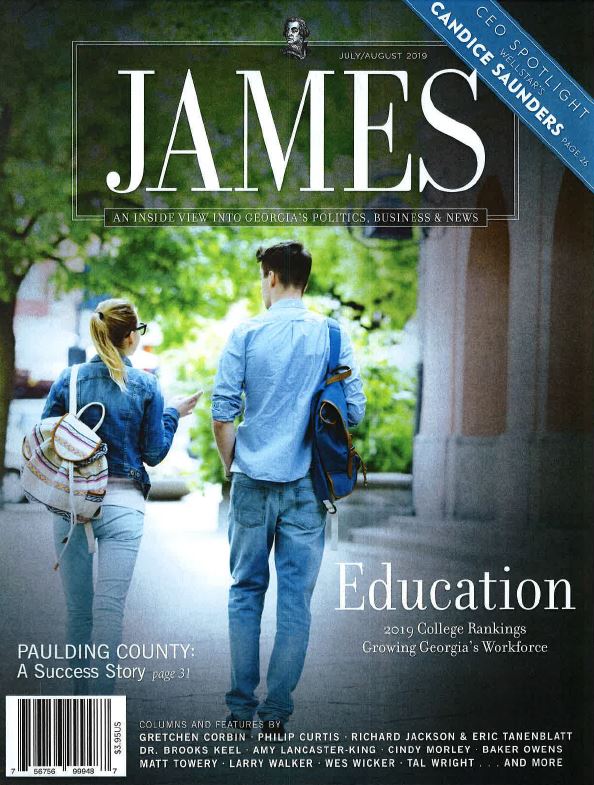
James Magazine
- Piedmont named #1 in top-10 colleges in the state (2019)
- Piedmont named #7 in top-10 colleges in the state (2018)
James Magazine provides “an inside view into Georgia's politics, business, and news.” Criteria were based on standardized test scores, career placement after graduation, and more.
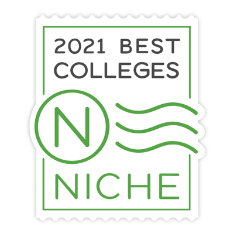
Niche
- Piedmont ranked #1 Safest Campus in America (2021)
- Piedmont ranked the #11 Best College in Georgia (2021)
- Piedmont ranked #4 of 28 Best Small Colleges in Georgia (2021)
Based in Pittsburgh, Niche used student reviews, statistics, and U.S. Department of Education data to compile the ranking. Founded in 1897, Piedmont received exceptional ratings in the areas of value, academics, and athletics. Rankings are based on analysis of academic, admissions, financial, and student life data along with reviews from students and alumni.

Study.com
- Piedmont ranked #26 of all Forensic Science programs in the U.S.
The site noted Piedmont's strengths in preparing students for future careers as criminal investigators. It noted Piedmont's specialty courses not often found in other forensic science programs, such as crime scene photography, evidence documentation, legal communication, and courtroom procedure. “The program also features a renowned internship program, where forensic science students will spend an entire semester working with real-world crime labs or law enforcement agencies.”

WalletHub
- Piedmont named #5 in Georgia in Best Colleges ranking
Personal finance site WalletHub releases its best colleges ranking, comparing 951 of the country’s colleges and universities across seven key dimensions, such as student selectivity; cost and financing; faculty resources; campus safety; campus experience; educational outcomes and career outcomes.

